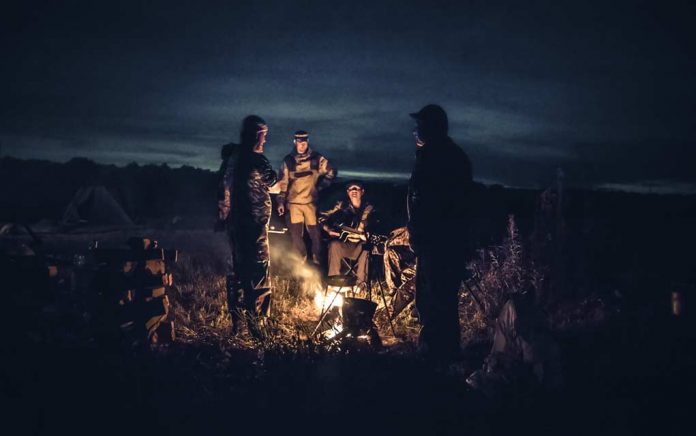
Many preppers have a lone wolf mentality when it comes to survival; they want to do everything on their own. In the event of a large-scale disaster, they plan to survive off the land in isolation. But is that really a good idea? After all, what happens if they become injured or fall ill? No one will be around to lend a helping hand.
This is precisely why it’s better to develop a tight-knit survival community before a crisis. If someone becomes injured, help is readily available. Having a strong, cohesive community of like-minded people can be a game-changer in an emergency situation. They can help you defend property, share tasks such as daily chores and gardening, and they can fulfill the basic human need for companionship.
So how can you build a gritty, capable team of survivors? Read on to find out.
Creating an A-Team
When looking to build the perfect survival team you should look for candidates that are:
- Mentally tough, meaning they don’t crumble under pressure or stress.
- Physically fit, this doesn’t mean they need to be a bodybuilder, just that they have good endurance and strength.
- Have skills that will contribute to the group as a whole.
An ideal group should have anywhere from 4-7 people, but the reality is it can be hard to find that many qualified people. This is why we suggest you begin to build your team starting with your family. You know their strengths and weaknesses, you live with them, and you are almost always together.
For starters, it’s simply easier to train and trust your family rather than a stranger. While the stranger may excel in areas your family members don’t, the amount of trust within your family plays a crucial role in your survival. You should develop a plan with your family in case of an emergency, making sure everyone knows every aspect of that plan. Not only is it easier to trust your immediate family, but you also don’t have to worry about traveling to meet up with them.
A few ways to train, prepare, and build your family as the ideal survival team include (but are not limited to):
- Taking survival courses.
- Developing a plan, and practicing the said plan.
- Learn critical skills for survival and practice them.
- Create family time that centers around learning new skills, such as camping, gardening or hunting.
Community
Your survival community can be rather large, space permitting, and it doesn’t have to be composed of just family. Good friends with a strong foundation of skills can be great additions to the group. Even a well-organized neighborhood watch can be considered a survival community in some instances.
The key to success is having every member contribute to the community. This doesn’t exclude children either — they can do simple tasks such as cleaning, weeding the garden, or even gathering firewood. While finding members that have overlapping skills may be difficult, each member should have a certain skill set. It is better to have multiple people capable of the same set of skills, just in case something happens and one is disabled. You don’t want to be relying on one individual only to lose them.
Critical skills that should be covered by at least one member each include:
- Foraging, not only for food, but also for medicinal plants.
- Hunting, specifically hunters that can actually dress their kill.
- Raising livestock and poultry.
- Veterinarian skills.
- Security — veterans, military personnel and law enforcement officers excel in this area.
- Medical, doctors, EMTs, nurses, and even people who are first aid certified.
- Mechanically inclined people have their place as well, both for building machines and fixing them.
One of the most valuable people you can have on your team is a jack-of-all-trades. Such individuals were in high demand during The Great Depression and will be so again in any future SHTF event. If you can’t find one to fill out your ranks, strive to become one.
Working as a Team
Having a strong survival group won’t matter if you can’t function as a whole. Working as a team will be the defining factor in whether or not you survive in the long run. In a SHTF scenario, you can’t afford petty fighting between members of the team. This will divide your unit, and eventually lead to its downfall. Fights are bound to happen, especially in a high-stress survival situation, but a well-oiled group can reduce the likeliness of internal conflict.
To create a strong community, capable of surviving the worst nature (or mankind) can throw at them, you will need to train together. To test your team’s strength, there are a number of team-building and testing activities. Some examples are:
- Camping
- Paintballing
- Capture the Flag
- Taking Wilderness First Aid and Survival Courses
As you work together, you’ll find that people’s true colors will show through — and you may have second thoughts about them. This is part of building the team though, you need to be able to know how people will act. This is especially true when under stressful conditions. Make sure each member is good for the team, if not don’t be afraid to find a replacement. Your survival may very well depend on it.
Copyright 2021, TheSurvivalGuide.com














